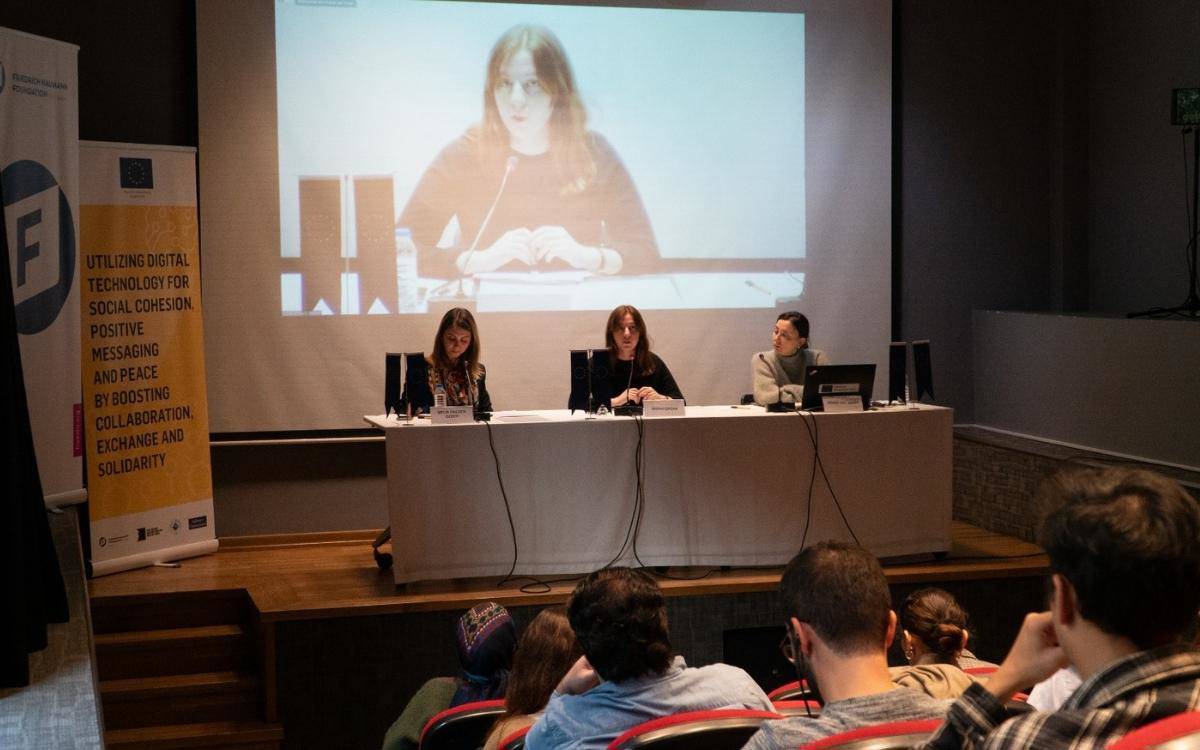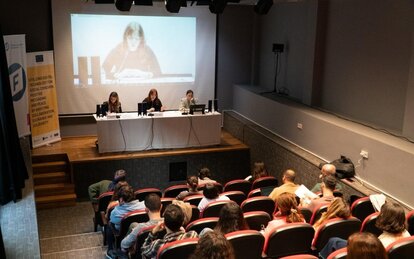Human Rights
Utilizing Digital Technology for Social Cohesion, Positive Messaging and Peace by Boosting Collaboration, Exchange and Solidarity

As part of the series organized within the scope of the project “Utilizing Digital Technology for Social Cohesion, Positive Messaging and Peace by Boosting Collaboration, Exchange and Solidarity”, the fourth panel titled “Algorithmic Design in the Context of Human Rights'' took place on Friday, November 10, 2023 at the Hrant Dink Foundation’s Havak Hall. The panel was broadcasted live on the foundation Youtube account in English and Turkish.
While 34 people attended the panel in person, 131 people followed the panel from the English channel, and 120 people followed it from the Turkish YouTube channel. In a panel where journalists and students were the majority, various topics previously discussed in the series were approached from different perspectives. The questions from both the audience in the hall and the live broadcast demonstrated the participants' keen interest in the subject after the speakers' presentations.
In the first session of the two-part panel titled "Designing Trustworthy Algorithms," Sarah Eagan discussed CCDH’s research on the recommendation algorithms of Instagram and TikTok. She mentioned that they found a tendency for these platforms to recommend more harmful content to users they considered vulnerable. She also drew attention to the increase in discriminatory and aggressive expressions on the platform due to reasons such as Elon Musk's acquisition, the restriction of academic access on Twitter, the loss of verified status for confirmed accounts, and the return of previously banned users. Gözde Gül Şahin began her presentation by emphasizing that large language models can be used to calculate accurate probabilities. She explained how different models are trained and ranked over time, stating that models' best versions can be created through examples. Tanu Mitra from the Social Computing research team at the University of Washington discussed their work on algorithmic governance. She shared the audits they conducted on the search and recommendation algorithms of YouTube and Amazon platforms for misinformation.

In the second session titled "The Relationship Between Data and Algorithms in the Context of Human Rights," Gökhan Ahi evaluated the consequences of rising populism in relation to the practices of social media companies. He pointed out that the algorithms used on social media platforms contribute to echo chambers and the promotion of populism through disinformation. The second speaker of this session, Shmyla Khan, began her speech by highlighting that artificial intelligence algorithms are produced with low-paid labor in the Global South, while these technologies are developed in the Global North. She emphasized that the production of artificial intelligence technologies in this way leads to algorithmic discrimination affecting marginalized communities, and the regulations are inadequate for the rest of the world due to their consideration of the Global North. The third speaker of the session, Lisa Ginsborg, mentioned that transparency reports under the Digital Services Act are related to companies' content moderation policies, but the transparency in these reports is very limited. She argued that companies tend to hide information about their decision-making processes.
